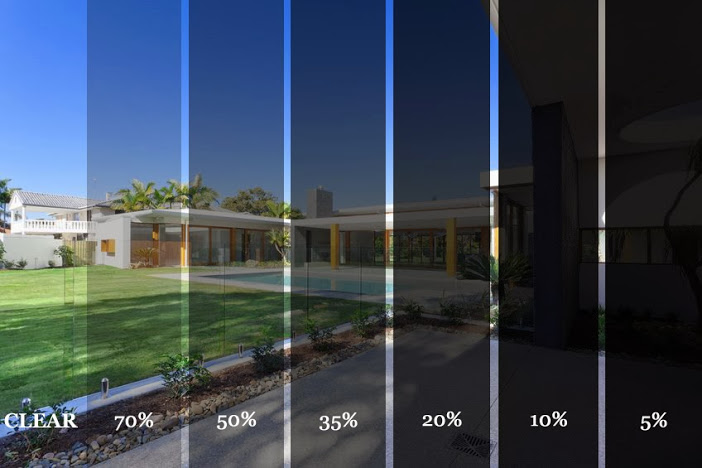Exactly How Residential Window Tinting Enhances Your Home's Energy Performance
Residential window tinting provides an engaging remedy for property owners seeking to improve power performance within their living spaces. By applying specialized films to home windows, it properly reduces heat transfer, thus supporting indoor temperature levels and decreasing the demand for too much home heating or air conditioning.
Recognizing Home Window Tinting
Recognizing home window tinting is essential for property owners seeking to enhance both comfort and energy efficiency in their space. Residential Window Tint. Window tinting entails the application of a slim film to the inside or outside surface of glass windows. This film can significantly modulate the quantity of sunshine and warm that goes into a home, therefore influencing indoor environment problems
There are numerous kinds of window tinting films available, each with distinctive homes. Colored movies soak up solar energy, while reflective films disperse it away from the glass surface area. Ceramic movies supply a balance of exposure and heat rejection, making them a popular selection among homeowners. The performance of window tinting is often gauged by its Visible Light Transmission (VLT) percentage, which shows exactly how much light can travel through the movie.
Benefits of Power Effectiveness
Home window tinting not only boosts appearances however additionally plays a considerable duty in enhancing power efficiency within household spaces. By lowering heat transfer via windows, tinted movies develop a more steady interior climate, which can cause significant reductions in power consumption for cooling and heating. This energy effectiveness converts into lower energy costs, offering house owners with substantial long-lasting financial savings.

In addition, home window tinting improves the comfort of living spaces. By decreasing glow and blocking dangerous UV rays, colored home windows produce a more enjoyable atmosphere, which can result in enhanced health for passengers. The security against UV rays likewise aids maintain furniture and floor covering from fading, contributing to the durability of home things.
Exactly How Tinting Functions
Tinting films operate through a mix of advanced products and technologies created to control the quantity of solar energy getting in a home. Mainly made up of polyester, these films often incorporate ceramic or metallic particles that show and absorb heat. This double capability allows them to considerably minimize the penetration of ultraviolet (UV) rays and infrared radiation while permitting noticeable light to pass through.
The efficiency of window tinting is measured by its solar heat gain coefficient (SHGC), which suggests exactly how much solar power is sent through the window. Lower SHGC values are better as they More Info signify higher heat being rejected. In addition, window tints can feature a variety of shades, permitting property owners to customize their aesthetic preferences while boosting energy efficiency.
Additionally, these films work as an obstacle, protecting against warmth loss during chillier months by mirroring indoor warmth back into the living room. This thermal insulation effect matches the cooling advantages gotten during warmer months, contributing to a balanced indoor climate year-round. By handling solar power properly, household home window tinting not just enhances comfort however likewise plays an important function in minimizing power intake and decreasing energy costs.
Selecting the Right Tint

There are various kinds of home window movies readily available, including dyed, metalized, and ceramic. Colored films are affordable yet may have restricted durability. Metalized films supply better warmth being rejected yet can hinder electronic signals. Ceramic films supply excellent warm control without compromising exposure and are extremely sturdy, making them a find here popular choice.
Noticeable light transmission (VLT) is one more crucial element, as it suggests the amount of natural light that can pass with the tinted glass. Property owners must choose a tint with a VLT that matches their illumination preferences while still offering appropriate glow decrease.
Furthermore, examining the solar heat gain coefficient (SHGC) can help identify how well a tint can obstruct warm from sunlight. A reduced SHGC suggests much better heat control, ultimately enhancing power efficiency.
Installation and Upkeep Tips
Correct setup and upkeep are important parts in making best use of the benefits of household home window tinting. Professionals also utilize specialized tools and methods, which can improve the longevity and effectiveness of the tint.
Adhering to installment, upkeep is important to extend the life of the home window movie. It is advised to wait at the very least 30 days before cleaning up the tinted home windows to allow the sticky to cure totally.
Furthermore, regular inspections are advantageous. Inspect for any peeling or bubbling, which might suggest incorrect installment or put on gradually - Residential Window Tint. Dealing with these issues promptly can avoid additional damages and preserve energy performance. By sticking to these setup and upkeep ideas, homeowners can ensure their window tinting proceeds to give substantial power savings and comfort for many years to come.
Conclusion
In final thought, property window tinting offers as an efficient option for improving energy effectiveness within homes. By decreasing warm transfer and obstructing dangerous UV rays, home window films add to reduce energy consumption and enhanced indoor convenience.
Window tinting entails the application of a slim film to the inside or exterior click reference surface area of glass home windows. By minimizing warm transfer with windows, tinted films produce a more secure indoor environment, which can lead to considerable reductions in power usage for home heating and cooling.The performance of home window tinting is determined by its solar warm gain coefficient (SHGC), which suggests how much solar energy is transmitted through the home window. By handling solar energy properly, household window tinting not just boosts comfort yet also plays a vital duty in reducing energy consumption and lowering energy expenses.
By minimizing warm transfer and blocking damaging UV rays, home window films contribute to reduce energy consumption and improved interior comfort.